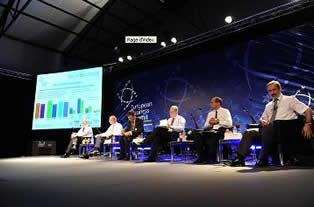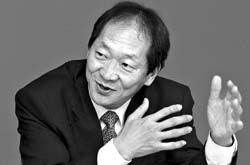
When Jean Monnet said the European Union would be drawn together in moments of crisis, he was most likely thinking of martial threats. Today’s economic crisis is nearly as damaging as past wars have been, but can this crisis foster unity within the EU, and between the EU member states and its long-standing allies?

“The potential pitfalls were not ignored at Maastricht” says Webber, “but it was generally believed that crises would actually result in further European integration – and they were right.” Recent factors such as bailing out stricken countries like Greece and Ireland, the establishment of a financial stability mechanism and the European Central Bank buying government bonds all point towards deeper European integration and co-ordination. But this is being played out against a backdrop of nationalism and a certain amount of xenophobia amongst EU citizenry who are nervous about supporting countries seen as the “weak links” of the EU.
Divided we fall
Failure to integrate further could cause the collapse of the euro and ultimately the EU itself. According to a recent report by the American Chamber of Commerce (AmCham) and the Centre for Transatlantic Relations entitled ‘Europe 2020: Competitive or Complacent?’ the EU is facing a “watershed” moment. It lists eight areas for primary focus: getting the recovery right; boosting productivity to drive overall growth; completing the single market; awakening the services industry; breaking the link between the production of wealth and the consumption of resources; fostering greater innovation; investment in manpower; and becoming a critical hub in the hyper-connected world in the coming decade.
Fostering innovation together is one of the most important factors for economic recovery and long-term growth in the EU. “We have a shortage of specific skills in Europe and we really need to look at [that]” said Executive Council of AmCham to the EU, Mikael Haagstrom, in a recent interview with INSEAD Knowledge at the European Business Summit in Brussels. “We need to have a practical agenda for addressing the skills shortage in specific areas, specifically new technologies … being able to attract specific talent from abroad is a very important function in driving innovation …”
Haagstrom notes that the EU budget traditionally favours agriculture over innovation, and this is something that needs to change. “If you look at the services sector, which is an extraordinary strong export opportunity for Europe by just identifying current opportunities, that’s 600,000 jobs immediately created in the EU which would correspond to one-and-a-half percent of GDP, and that’s significant.”
He warns that not investing in the right area will not help solve the long-term problems. “I’m talking about converging knowledge.” A nurse, for example, spends a lot of time entering data and doing paperwork. If those tasks were automated, time saved could be used to treat patients. Great in theory but harder in practice: in the short term when times are hard, it’s not easy to take money and invest it into research and innovation for longer-term benefits. Hard times tend to produce short-term execution, not long-term planning.
Short-term crisis, long-term solution
The problem is that short-term solutions to today’s EU member states budget crises mean budget cuts, and that means less money to invest in education and innovation, creating a domino effect. High budget deficits and greater unemployment appear to be giving rise to a double-dip recession, which in turn could lead to even gloomier employment statistics and greater protectionism on both sides of the Atlantic.
Currently the EU and the US are a deeply integrated trading bloc – more so than any other two regions in the world. “When we look at trade – and not just the trade figures but also the investment figures – the transatlantic links are by far dominating the other trends that you see,” says Haagstrom. Webber believes, however, that although the transatlantic relationship is still fairly stable, it is likely to grow weaker in the long term. “The end of the Second World War and ensuing Cold War ensured a high American presence in Europe, but this has weakened over the years and with the end of the Soviet Union and greater European integration, is not deemed as necessary,” he says. Both American and European politics have become more internal, with the US shifting focus to Asia in search of cheaper production and growth markets, at the expense of its mature transatlantic relations with the EU.
China’s position is also significant – the US and the EU need to ensure close co-operation and trade links with the world’s second-largest economy. But the US ambassador to the EU, William Kennard, believes that the EU and US must not lose sight of the powerful force the two blocs can become together, particularly in energy, technologies, IT and innovation. “We’re stronger if we work together in promoting a stronger recovery,” he told INSEAD Knowledge during the European Business Summit earlier this year, using the following examples: public-private dialogue; common standards between the EU and US; and taking a deeper look into how to invest in growth of innovation to compete with the BRICs .
“With crisis comes change,” AmCham’s Haagstrom notes optimistically. “I think there is bigger readiness for change now than we’ve had for a long time and I hope we can translate that readiness to actually implement change into action.”
-
View Comments
-
Leave a Comment




No comments yet.